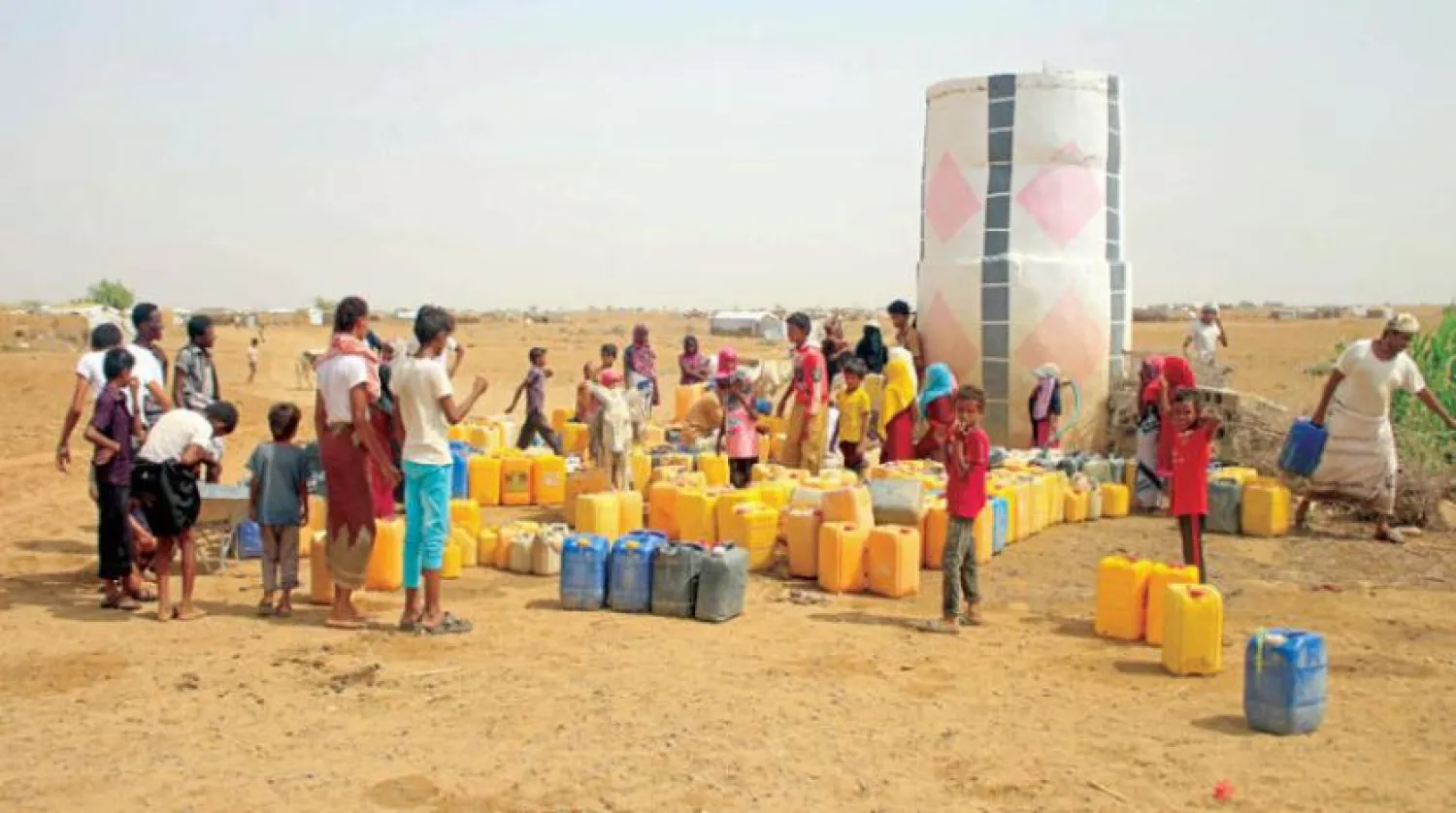Pockets of famine-like conditions have returned to Yemen for the first time in two years in three Houthi-controlled governorates, an international report has revealed.
There are nearly 50,000 people living in famine-like conditions in Hajjah, Amran, and al-Jawf, the International Committee of the Red Cross (ICRC) showed in a report this month.
Over five million people in Yemen are on the brink of famine as the conflict and economic decline left families struggling to find enough food to get through the day.
The rate of child malnutrition is one of the highest in the world, and the nutrition situation continues to deteriorate, it warned.
A recent survey showed that almost one-third of families have gaps in their diets and hardly ever consume foods like pulses, vegetables, fruit, dairy products, or meat.
It stressed that the current level of food insecurity in Yemen is unprecedented and is causing severe hardship for millions of people.
Despite ongoing humanitarian assistance, more than 16 million Yemenis are food insecure.
The report said malnutrition rates among women and children in Yemen remain among the highest in the world, with 1.2 million pregnant or breastfeeding women and 2.3 million children under five requiring treatment for acute malnutrition.
In 2021, the ICRC provided various forms of relief support, including food, unconditional cash grants, basic household items, and aid with agricultural and animal products to more than 1,600,000 people.
This was done in coordination with the Yemen Red Crescent Society (YRCS) and the local communities.
Also, in 2021, 112,563 livestock keepers benefited from the ICRC-supported vaccine campaigns, and 3,769 beekeepers and farmers benefited from ICRC beekeeping projects and agro support in different parts of the country.
In this context, the ICRC said Yemen is a water-scarce country.
“The protracted conflict and the under-investment in water infrastructure today deprive millions of Yemenis of access to clean and drinkable water,” it said in another report it released earlier this month.
It cited several underlying causes that are contributing to exacerbating the water crisis in Yemen, including the proliferation of Qat as a cash crop, which consumes more than 40% of Yemen’s total renewable water resources and 32% of all groundwater withdrawals.
The report indicated that the rate of groundwater overdraft is currently much higher (twice) than the recharge rate, and is increasing, bringing depletion of water reserves, inequity, and shortages.
According to the United Nations Office for the Coordination of Humanitarian Affairs (OCHA), it is estimated that 17.8 million people lack access to safe water and adequate sanitation services in Yemen.
The current water network reaches less than 30% of the Yemeni population. Thus, millions of Yemenis, including women and children need to walk for miles to fetch water.
Lack of access to clean water has caused major health outbreaks, including cholera and acute watery diarrhea that started in October 2016, leading to the country’s worst cholera outbreak in modern history (2.5 million cases reported, and more than 4,000 people have died in the Yemen cholera outbreak).
The ICRC said it has been addressing the most urgent needs through the repair of boreholes and water stations, distributing water to detention facilities to reduce water-related disease outbreaks, and rehabilitating sewage systems.
It also supports the maintenance of water networks and the provision of chlorine tablets, fuel, generators, and maintenance tools to local water and sanitation corporations (LWSC) to ensure continuous provision of safe water.









